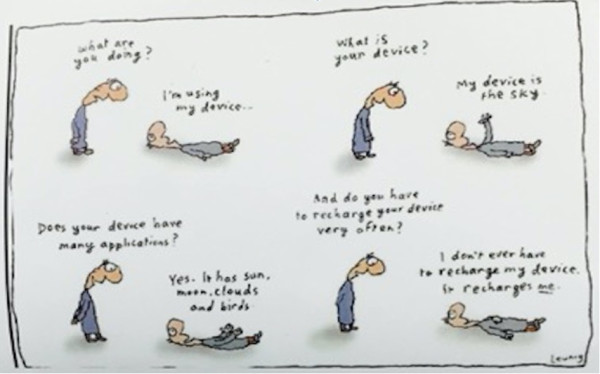The illusion of not having enough time to be (or to practice mindfulness)….
12 April 2024
Recognising addiction and our relationship with TIME
What are we doing with our lives? This has a lot to do with our relationship with time. And many of us have massive demands. We are busy. That is true.
However, much of that time that might be free is taken over by our addictions - addiction to the stimulation of compelling excitements, delights, and horrors of news, shows and social media.
And this is not a personal failing. Johann Hari points out in Stolen Focus, that the vulnerabilities of human beings and the structures of modern life and work, have come together in ways that have produced a social attention crisis.
The cost of this is big:
- our personal lives and relationships get starved of proper attention, but also
- as a society, we are tapping out of reservoirs of care and creativity to solve the bigger problems facing us.
So what to do?
A question about time
A question that I ask everybody now, as part of the pre-course interview for the Mindfulness Based Stress Reduction course, is how they are going to fit in the practice to an already busy life. This is a challenge for us all.
Then I ask: how much time do you spend on the internet, social media and watching streaming services? It turns out that most people have 1 - 2 hours a day to practice mindfulness meditation!!
Being prepared to feel unpleasant feelings
Did you know that mindfulness meditation training is a training in being less reactive to experience – even when it is unpleasant. This purposeful training helps us be more present to savour and enjoy pleasurable experience, as well build capacity to be there to explore and tolerate the unpleasant – and that includes our painful feelings and difficult thoughts.
We can see that we do have time for other things (even for meditation), if we can let go of our addiction and avoidance. This involves being prepared to feel irritated, sad, bored, a bit empty or lonely, without reaching for a “fix” from our devices.
The training itself helps us learn how to explore and process our emotions as well as relate to our thinking differently.
One famous teacher said “Meditation is a way of expanding the experiences in which we feel free.” Note – he didn’t say “Constructing my life so I don’t have any difficult moments”.
Learning mindfulness and why apps “don’t work”
My darling 12 year old niece once got a long-desired surfboard for Christmas. We all went down the beach to Margaret River in WA, and she happily went off for her first surf. In 10 minutes she was back, and throwing the board down, she declared: “It doesn’t work!”.
This is often what we feel when we begin learning mindfulness, especially through an app. After a few trys, it is easy to say: “It doesn’t work!” or “I am not doing it right.” or “This is for other people but not for me”. When it stops being immediately relaxing, most people give up. And often, what we encounter when we begin practicing is how our minds actually are: distracted, irritated, rushed and over-whelmed by demands. And we feel alone and powerless to affect that experience.
Without access to a teacher who knows what you are grappling with and walking alongside you, the practice can make little sense.
And partly this is to do with the approach. We are fitting something in to “fix” an uncomfortable state, rather than making time to understand and become intimate with that state. John O’Donoghue speaks of how we approach something being enormously powerful:
“When we approach with reverence, great things decide to approach us. Our real life comes to the surface and its light awakens the concealed beauty in things. When we walk on the earth with reverence, beauty will decide to trust us. The rushed heart and arrogant mind lack the gentleness and patience to enter that embrace.”
What if we approached learning mindfulness with a kind of reverence for our own mind, not to get something from it, but to get to know it, to appreciate it and care for it.
So let’s take a leaf out of Leunig’s book, and start being charged by the sky and all it’s applications: sun, moon, stars, waterways, and the earth. Let’s start relinquishing our obsession with stimulation. Let’s start delving into the depth and richness of a human life that can arise when we pay attention.
Come and join a course or retreat.
More information about our courses
More information about our retreats

Timothea Goddard
Director
Australian Centre for Mindfulness

